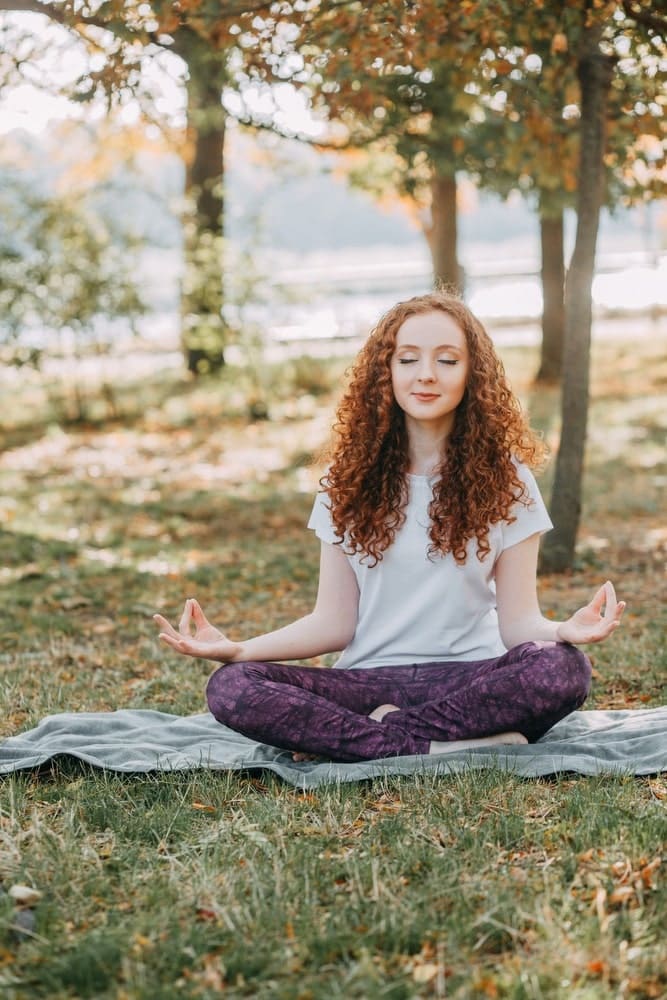
viemagazine-HERO5-min
Love Where You Live
The Top 10 Cities for Good Mental Health
LawnStarter, the popular startup and blog known for making lawn care accessible and affordable, compared over 190 of the biggest US cities to rank 2022’s Best Cities for Mental Wellness. The study is timely, as the importance of one’s dwelling became all too clear during the recent pandemic. Access to nature’s beauty, quality of mental health resources, and living costs were paramount to making the health crisis a smoother ride for people. Reasonably, these factors still hold heavy precedence more than two years later. But, of course, other things that contribute to one’s quality of living are not contingent on zip code. So, please don’t feel the need to move immediately, but the list is undeniably insightful.
“Sunshine, moderate temperatures, and walks in the park with your BFF (best furry friend)—days like this can make wherever you live a ‘Best City for Mental Wellness,’” says Jeff Herman, editor-in-chief of LawnStarter. “But some cities have more mental health resources, less financial stress, and score As when it comes to getting some Zzzs. That’s why LawnStarter set out to determine 2022’s Best Cities for Mental Wellness among the top two hundred largest US cities.”
Your city is a big factor in your mental wellness.

In addition to weather, park access, and pet ownership, the team at LawnStarter looked at access to therapists, the cost of living, average sleep levels, meditation classes, and urban gardening friendliness to determine its list. The top ten locations for living in the best state of mental well-being are:
- Naperville, Illinois
- Pasadena, California
- Seattle, Washington
- Fremont, California
- San Francisco, California
- Bellevue, Washington
- Alexandria, Virginia
- Irvine, California
- Fort Collins, Colorado
- Santa Rosa, California
We spoke to Herman to hear more of his thoughts on the findings, and he sprinkled in some valuable wisdom for those whose current home city is not on the list.
VIE: How important is the city someone lives in for their mental health?
Jeff Herman: Your city is a big factor in your mental wellness. Those long commutes can make you stressed or tired, but great schools for your kids can ease your anxiety about their learning. The urban jungle is less inspiring than lots of green space. And ample mental health resources are a big help if or when you need them.
Your city’s weather can affect your mental wellness, too. Four seasons can be a joy, but long, cold winters or weeks of record-breaking summer heat can take a toll on your soul.
VIE: What factor in a city do you believe has the most significant impact on the population’s mental health?
JH: Green space likely has the biggest impact on a city’s mental wellness. If work has you down or on edge, go for a walk. If the cold has you feeling blue, take a hike—spotting a yellow, white, or purple crocus can make your day.
The ample green space is what I remember and miss most about living in Downtown Indianapolis. Those vast, open grassy areas between the war memorials offer a great respite from the high-rises and development. In addition, walking along the beautifully landscaped Cultural Trail always lifted my spirits, even when I was walking home from work at midnight.
VIE: Can you explain why the West Coast seems significantly happier than the East Coast?
JH: A lot of sunshine, natural wonders (beaches, redwoods, and mountains), and near-perfect weather are big reasons West Coast residents seem happier than their East Coast brothers and sisters. The West Coast also has more meditation centers and more mental health professionals. Add to this the more easygoing West Coast outlook on life and generally more healthy lifestyles, and California, Oregon, and Washington State residents are calmer and more fit than many people from New York to Washington, DC.
On both coasts, there’s a lot of hustle (and higher financial costs than elsewhere), but on the West Coast, there’s a bit more flow. A friend driving north from San Francisco claimed the cows are even happier there.
VIE: Why is a list like this one helpful for those looking to improve their lifestyle?
JH: There are things we can do to improve our mental wellness. You don’t have to move to Naperville, Pasadena, or Seattle (numbers one, two, and three on our list) to be happy, and you might not be any happier even if you did.
Our top-ranked cities have a lot going for them and their residents, but mental wellness starts at home. So how can you increase your mental health wherever you live? Take more walks. Get a dog. Hug your spouse and kids. Send a surprise gift to a friend or family member. Take time to watch the sun rise and set each day. Limit your screen time and increase your face-to-face time.
VIE: Do you have any tips for people who want to improve their well-being even though their city is not on the list?
JH: A quick tips list (in addition to the ones above) to be more upbeat about life wherever you live:
- Be grateful. We have so much to be thankful for—our health, families, friends, and jobs. A grateful heart equals a more mentally sound soul.
- Adopt a pet. Seriously, that unconditional love from your dog is priceless, and those times when your cat walks in front of the Zoom camera will make you and your colleagues smile.
- Walk it off. I try to go for a morning walk every day and take photos of the flowers in bloom. Walk after work to calm down—bonus points if it’s at sunset. Walking is good for the mind and body.
- Visit your secret spot. For me, that’s the Rose Garden at Farmers Branch in Dallas. There’s almost always something in bloom, and it’s a great place to think through big decisions.
- Do some good. Volunteer somewhere, help a friend move, or drop off food to a sick friend. Doing good for others really does make you feel good, and that improves your mental wellness.
- Read more. Get off the computer and phone. Open a book and make time to read. You’ll be smarter in life and at work, and if you liked the book, pass it on to a friend afterward.
- Just do it. Don’t mope. Don’t put off until tomorrow what you can do today. Stay active and get stuff done. You’ll feel happier and amazed at all you can get done in a day.
- Ask for help. Stressed? Anxious? Weighing a big life decision? Friends make my world go around, and knowing I can call them whenever I need to—as I have—is a great comfort.

Do some good. Volunteer somewhere, help a friend move, or drop off food to a sick friend. Doing good for others really does make you feel good, and that improves your mental wellness.
VIE: Is there anything else you would like to add?
JH: When you’re stressed at home, at work, or financially, ask for help. Your mental wellness is at stake. Friends and family are there to help, but you have other resources, too. Your Employee Assistance Program often connects you to advisers and counselors. There are also community resources you can turn to.
Beyond that, help is just a call or click away. Call 988, the new Suicide Prevention Hotline, if you feel things are beyond hope. Or reach out to any of the new online sites offering counseling, like Talkspace, and check beforehand to see if your health insurance will cover the costs. If you’re living in a remote area and a far drive from a big city, online counseling can be a lifesaver (literally).

What’s LawnStarter’s connection to mental wellness? Well, mowing the grass and weeding can be like therapy. That definitely was the case for me; I enjoyed pushing the mower and pulling up weeds in my yards in Gainesville, Florida, and St. Louis, Missouri. And if you’re ever down, lie down on the grass and look up at the clouds. What do you see? It’s even better if you and a friend are looking up together. What does each of you see? I sometimes would do this at Zilker Park when I lived in Austin. Looking at clouds is calming.
— V —
Check out LawnStarter for all your lawn care needs and then some at LawnStarter.com.
Share This Story!
KEEP UP WITH THE LATEST STORIES FROM VIE
















































































































































